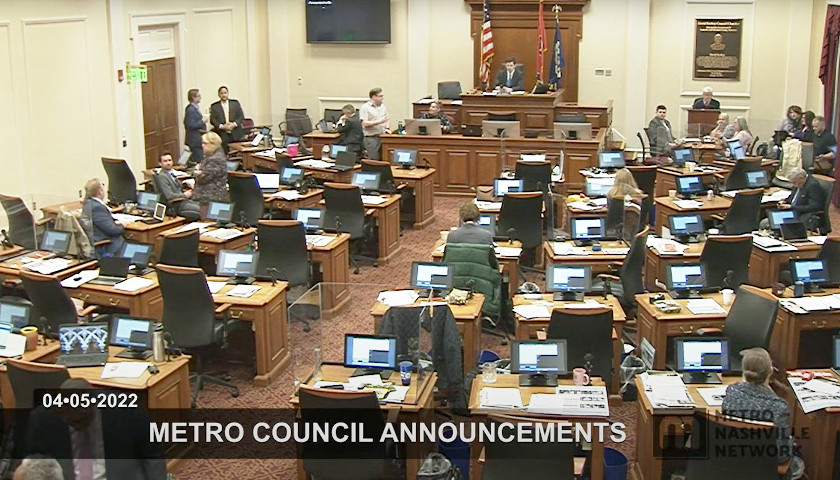Metro Nashville Council deferred action to the second meeting in July on a proposed ordinance that council legislative staff said was illegal. In its current form, the bill would ban license plate reader use for cooperation with U.S. Immigration and Customs Enforcement.
This is the second time that action on the bill was deferred.
When the issue came up at the meeting, Councilman Bob Mendes asked for committee reports. The requisite committees unanimously recommended deferring the ordinance to July 19. Mendes then moved to defer consideration of the ordinance to that date.
Mendes explained his motion saying, “Some more thought is necessary.” He wanted to defer to July in order to “get past the budget meetings.”
“We can figure it out then,” added Mendes. The rest of the Metro Council agreed.
The proposed ordinance is BL2022-1115 and is sponsored by Councilmembers Mendes, Dave Rosenberg, Burkley Allen, Ginny Welsch, Zulfat Suara, Tom Cash, Sean Parker, and Emily Benedict.
The Tennessee Star previously reported that the Metro Nashville Council legislative staff prepared agenda analysis and said that Section 1 of the proposed ordinance violates state law. The proposed legislation would create a sanctuary city policy, which is explicitly banned by the Tennessee state code.
**This ordinance, if enacted, will violate state law: Title 7, Chapter 68, Part 101, et seq., of the Tennessee Code Annotated (the “Act”).**
A court will likely find that this ordinance violates the Act – which prohibits a local governmental entity from adopting a “sanctuary policy”- because the ordinance would prohibit a department from using the LPR system/information to assist federal officials with immigration compliance. Section 1 of the ordinance explicitly contravenes the Act. The Act provides that “No local governmental entity or official shall adopt or enact a sanctuary policy.”
The council agenda analysis further explained, “Section 1, as proposed, would be an express adoption of a sanctuary policy as defined by the Act because it proposes to prohibit any department within the Metropolitan Government from utilizing the LPR system or collected information to cooperate with federal officials in connection with immigration laws of the United States.”
The analysis also noted the consequences that the Metro government would face under state law if the council were to enact the legislation as presently written:
If enacted, the Metropolitan Government will be ineligible to enter into any grant contract with the state department of economic and community development until the policy is repealed. Further, state law authorizes residents to bring a complaint in Chancery Court alleging that the ordinance violates the Act. If a court determines that the Metropolitan Council has adopted a sanctuary policy, it can order that the Metropolitan Government comply with the Act, enjoin the Metropolitan Government from further interference with the Act, and take other necessary action to ensure compliance.
– – –
Aaron Gulbransen is a reporter at The Tennessee Star and The Star News Network. Email tips to [email protected]. Follow Aaron on GETTR, Twitter, and Parler.





